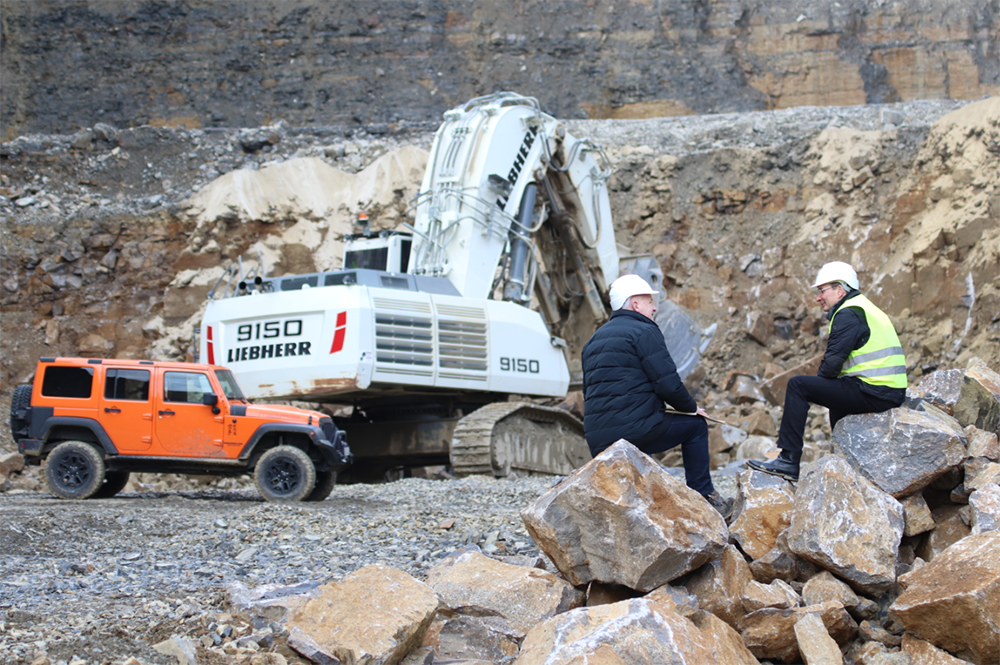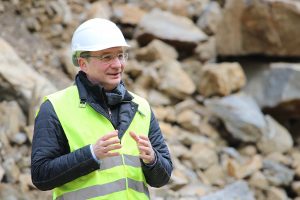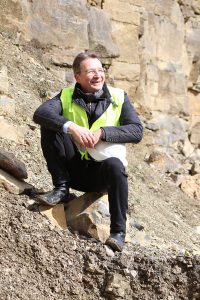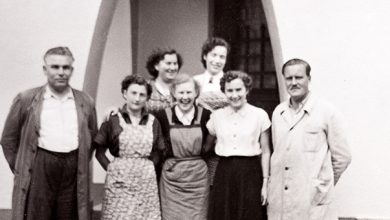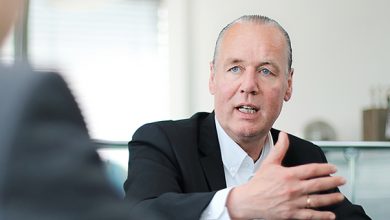If you read the few lines you find about Dirk Görlitzer, you might think he is a typical representative of a career in a flash: university, employment, top management. Not so! An exciting interview with one of the new faces in the management of Phoenix Contact.
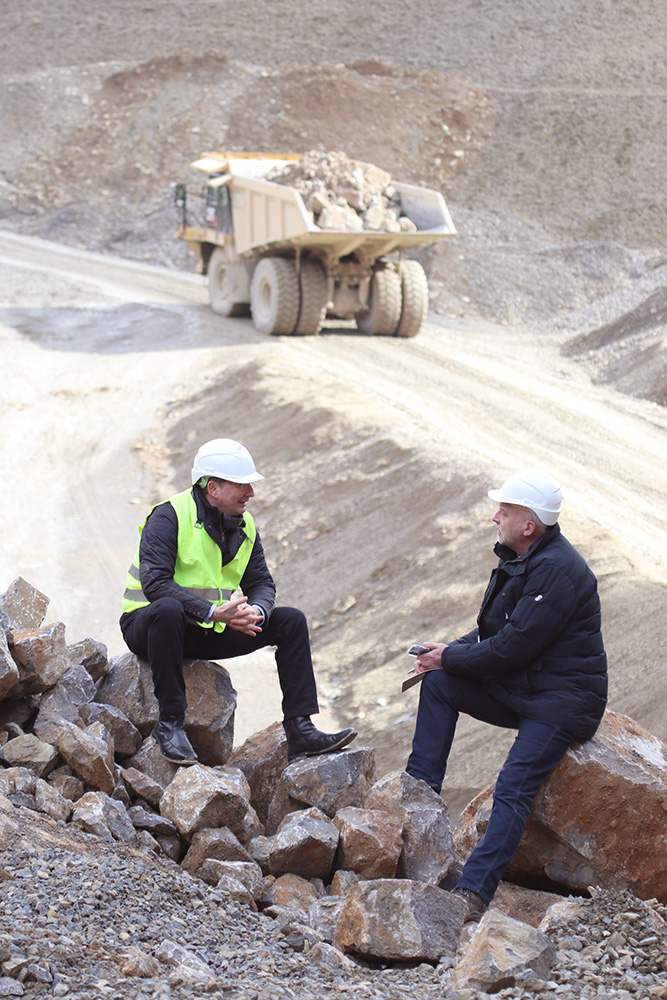
UPDATE: Mr. Görlitzer, since August 2020 you have been one of the “newcomers” on the management board of Phoenix Contact. What is new for you in your area of responsibility as a member of the Board?
What is really new for me? Getting to know the higher-level control functions of our company, such as the advisory board or the shareholder group, which I know as people, of course, but not yet in terms of their mechanisms of action – that’s new and exciting for me.
UPDATE: Does this also concern new tasks in the international field?
I have always had a very international outlook, and the ICE business area was also very international right from the start. One of my first parallel tasks to my role as Senior Vice President at the time was to take responsibility for our plant in Poland from the overall Group perspective.
I am fascinated by India, where I have built up shared service concepts. And now I have been given overarching responsibility on the Executive Board for the three major markets – China, Russia and India. We want to develop these defined markets into centers of competence with independent decision-making powers. The challenge will be to promote this independence and make the organizations flexible and agile, but at the same time not to lose the connection to our headquarters and thus synergies in a global context.
I am usually on the road three times a month, but I often communicate briefly and concisely via short message services or make phone calls. I am therefore also very close to our international processes, even if I can’t always be on site.
I come from a traditional family of workers and craftsmen.
Dirk Görlitzer, COO Phoenix Contact
UPDATE: Aren’t there still a few exciting countries missing, such as the tiger economies of Southeast Asia?
Strategy is also the courage to do without. (laughs) When we talk about Centers of Competence, we are talking about comprehensive value chains, sales, development and production. We cannot set up production and development in all regions of the world at the same time; that would also overstretch our resources. You should walk before you run. We are now starting to establish this strategy in the countries described, paying attention to our strengths and synergies, and in perspective we will also include other zones in this concept.
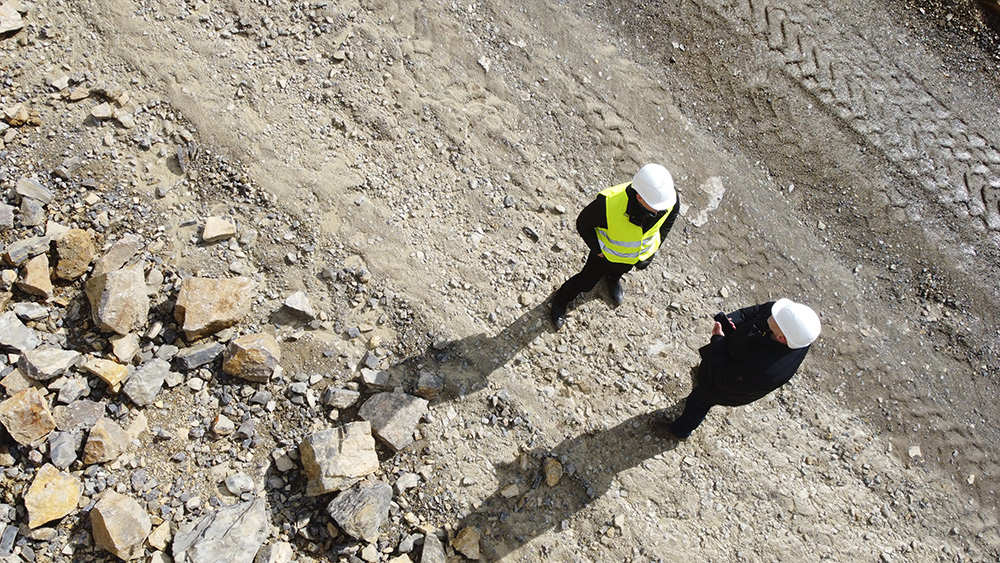
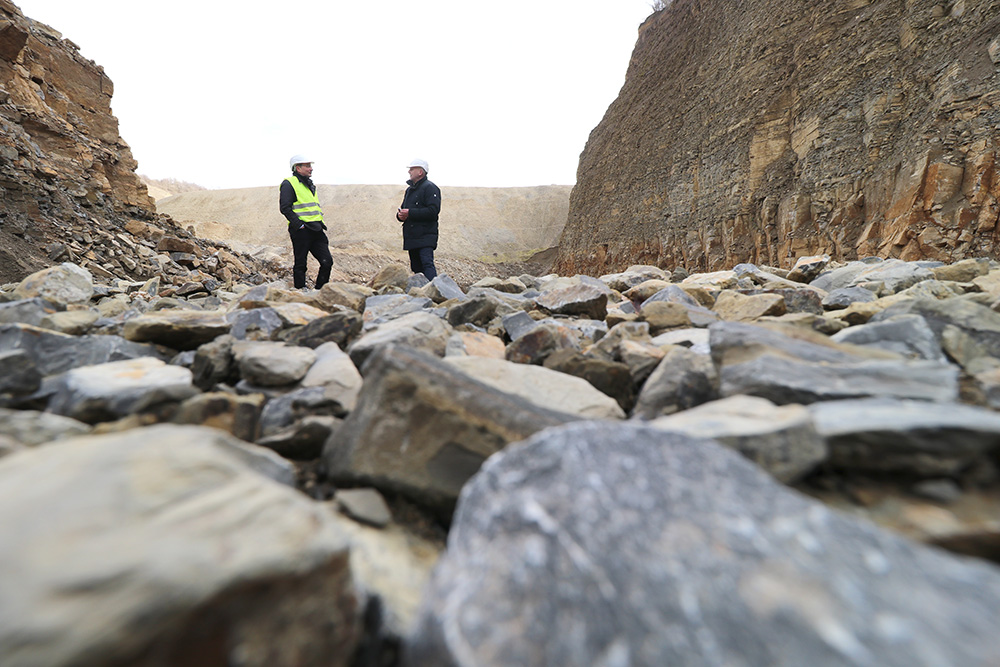
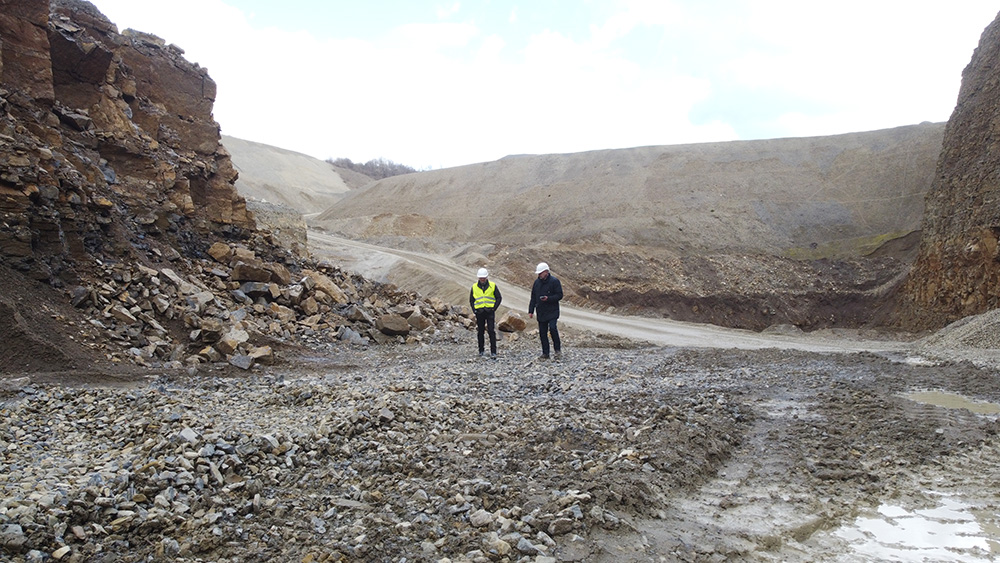
UPDATE: Are you actually an East Westphalian?
(decided) No! I am a Lower Saxon. I come from a very classic working-class and craftsman’s family, first completed an apprenticeship and worked as an electrical machine builder. So an academic career was not in my cradle. I did study in Lemgo, but in a kind of self-study. During the day, I was often involved in my job and family, so there was often only time for studying in the evenings. And as a young family man on a tight budget, I worked at the wholesale flower market on weekends. During the semester breaks, I actually worked in the quarry, maintaining and repairing equipment like this one.
That still pays off for me. Today, when I go to the control panel shop, talk to the workers about their problems, who often have very direct and honest communication, I understand that world. I can talk to the people at the workbench just as I can to my colleagues who are in managerial positions in the office.
UPDATE: How did you join Phoenix Contact?
During my studies, I had the opportunity to take additional seminars. There was a seminar on “Sales and Marketing”, which was held by representatives of various companies. And I found the part held by Phoenix Contact extremely positive, both in terms of content and in human terms. That was the basis for me to submit my application there. That was 26 years ago now.
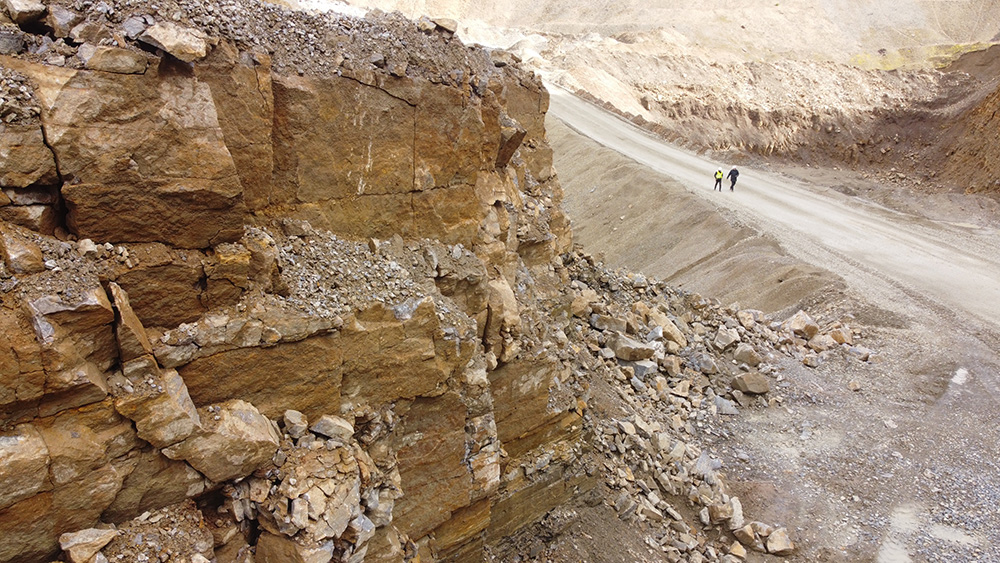
UPDATE: What were your beginnings at Phoenix Contact?
I started in 1994 as a product manager for the good old terminal block. At that time, the company was still much smaller. It was the phase when we established a matrix organization. There was a lot of excitement, a very exciting time. There were three employees in charge of the rail-mounted terminal block division, who were responsible for and designed everything. One of them was me. Very small, super familiar. In the beginning, I was supposed to bring something to the pneumatic tube, so I thought they were pulling my leg as the new guy. Until I realized that there was actually still a pneumatic tube here.
That was exactly the time when people were already predicting the near end of the terminal block. It was the time of field buses, there was a theory that field buses would replace terminal blocks. Quite a mistake (smirks).
I then had different tasks, developed into a group leader. In 1999, I then became a BU leader, then a division leader and then a BA leader. Sounds linear, but it was always “spiced” with special tasks, especially in the international area. And since August of last year, I have been a member of the Management Board.
UPDATE: Now you do not become quasi by seniority after 26 years automatically managing director. What defines the leadership personality of Dirk Görlitzer?
I have a desire for success, for the company and also as a person. I don’t mean that in its negative sense, but as a positive development. I have always enjoyed working. To shape something, to build it up, to see it grow – that’s what I like. The final reward is to personally experience the positive voices of customers at trade shows.
As Business Area President, I’m naturally in the right position – on the one hand, maintaining an overall view, but at the same time being able to support my colleagues in their direct work is something I consider a great advantage.
UPDATE: You have gotten to know many sides of Phoenix Contact, experienced a lot of change. How has the colleague Görlitzer himself changed on his way?
I am always direct and honest. It’s certainly intense to work with me. Whereby I have certainly changed my style a lot over the years. Authoritarian is the wrong word, but in the beginning I had very clear ideas about my target image. I wanted to build a system out of the terminal block. It was clear to me that this was a task that would take a good ten years. And when you’re pursuing such a long-term picture, you’re not very willing to make short-term compromises.
But the bigger and more complex the tasks and organization become, the more you have to change. Management styles break down when the person at the top can no longer manage two things: complexity and agility. The old management styles based on naked assertiveness and hierarchy will no longer lead to success.
Hierarchies should be very permeable. And colleagues should and can also dare to approach me with their issues. As a human being, you see the people around you.
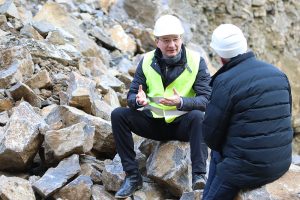
UPDATE: In the globally operating medium-sized company Phoenix Contact, a lot of importance is attached to the corporate culture. How do you want to influence this culture in the future?
As a manager, I have three elements to develop simultaneously: Our business models, the international organization and, of course, the people with their different personalities and skills. The more responsibility you are given, the more the balance shifts. Empowering the people of the next generation, preserving our own identity are of course essential key tasks. We can’t just write down our corporate culture, we have to pass it on in a living way. We shape our business models and international organization with and in the spirit of this culture. These are three equal poles of a system – with the customer at the center.
UPDATE: Are you more of an engineer or a salesman at the bottom of your heart?
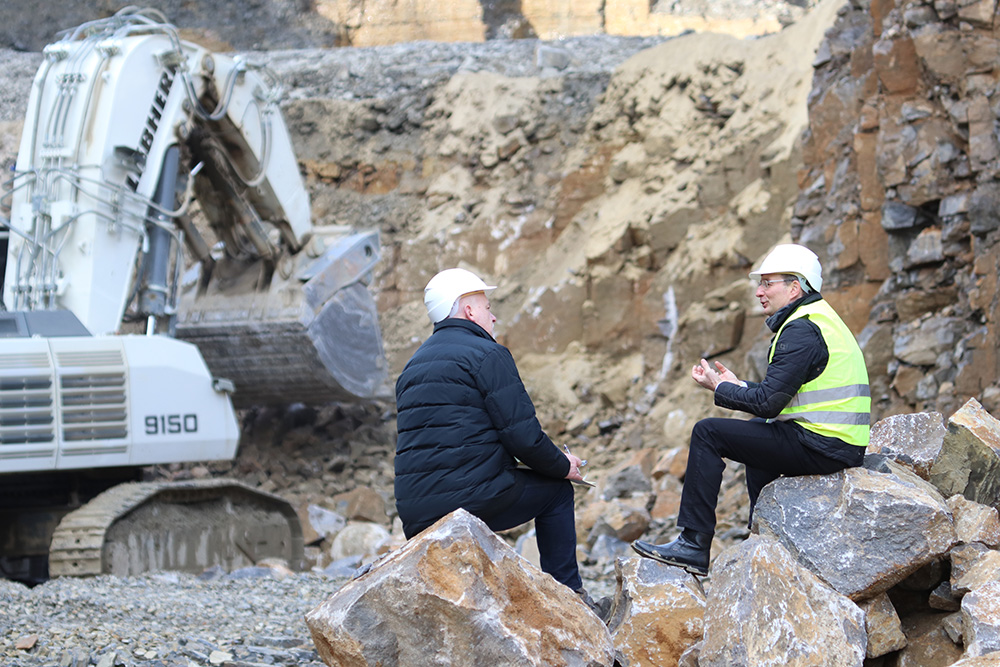
I am more of a generalist and am interested in all functions. That includes sales, talking directly to customers, as well as production and development. However, my hobbyhorse is still product marketing and development – the heart chamber for our offerings to the customer. In my role, I am constantly taking advantage of all the opportunities to learn. My aspiration is to be able to ask the right questions in any function and at any time.
UPDATE: You are a successful Business Area President in an organization that acts and is expected to act very independently. At the same time, you and the other two BA presidents Leidecker and Janwlecke are to structure the role of their own Areas in their function as a member of the management to the extent that they fit into the overall strategy. Is that not a contradiction and balancing act?
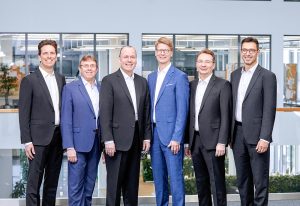
Dirk Görlitzer, Ulrich Leidecker (v.l.)
I believe that everyone is well advised to always consider the requirements of the company in addition to their own objectives and to prioritize these more highly. It’s always important to distinguish between short-term fun and long-term pleasure (laughs). With this in mind, I am of course very aware of the arc of tension. But in today’s integrated world, an isolated strategy can never work. It’s not a question of size. All functions such as logistics, IT, and also tooling and mechanical engineering are key success factors for the business areas. Being jointly responsible with colleagues here is an incredible advantage. Long-term planning is made much easier, and all units can rely on each other and flourish.
UPDATE: Inquired again: Three successful top managers, three strong leadership personalities with very different approaches – how does that harmonize in the management?
True, we are very different, also in our business models. But we have known each other for many years, including our different approaches, and we value each other as people and managers. And we are constantly looking for synergies in our exchanges. This touches on technological topics as well as organizational elements, which always lead to positive discussions.
The independence of the business areas is one of the reasons for our success. The customer perspective is at the heart of our diversification. The business models are organized according to how we can best satisfy these requirements of our customers. A customer who wants us to provide a solution for controlling a windmill has different requirements than a customer who needs a system for power supplies. As technicians, we naturally understand the worlds of the other two business areas as well, which is a great advantage.
Humor is an important key.
UPDATE: How do you deal with friction in these voting processes?
I like the concept of dispute, which is an important concept in my BA and which I also try to cultivate. It’s about taking different perspectives, exchanging arguments, even in an intense dispute, and after weighing all the arguments, there is always a clear decision-making process. Friction and dispute have a positive connotation for me. I represent my opinion, but I also allow the opinion of the other person. I am very open. And humor is an important key. I really appreciate being able to bring a smile to those around me.
UPDATE: Would you describe yourself as a person who acts rather controlled and also often self-reflects and questions?
Yes. In my view, self-awareness is part of further development. You can’t develop if you don’t see yourself, if you don’t admit your own mistakes. In my view, honest self-reflection is a key characteristic of good management. This applies in our work as managers, but also as people.
UPDATE: What do you think about the mission statement of the All Electric Society?
I am deeply convinced that this vision is right as a picture of the future. It is a beautiful bridge to the future for all Phoenix Contact stakeholders. For our customers, the electrification of the world causes a huge growth cycle of one or two decades. It is now in our hands to show that there is no contradiction between economy and ecology. Our industry is at the center of the transformation – I’m really looking forward to that.
UPDATE: The terminal block was long considered an old-fashioned discontinued model. How do you see this technology against the background of the vision Empowering the All Electric Society?
Whether renewable energy generation or energy storage with power-to-X technologies, products and technologies from BA ICE will always be used. Connecting, switching, protecting, energy generation, energy conversion, energy measurement – these are the classic core areas that Phoenix Contact has helped to establish over the last 100 years. In an All Electric Society, there are fantastic, almost infinite possibilities – especially for the good old and still top-fit modular terminal block.
